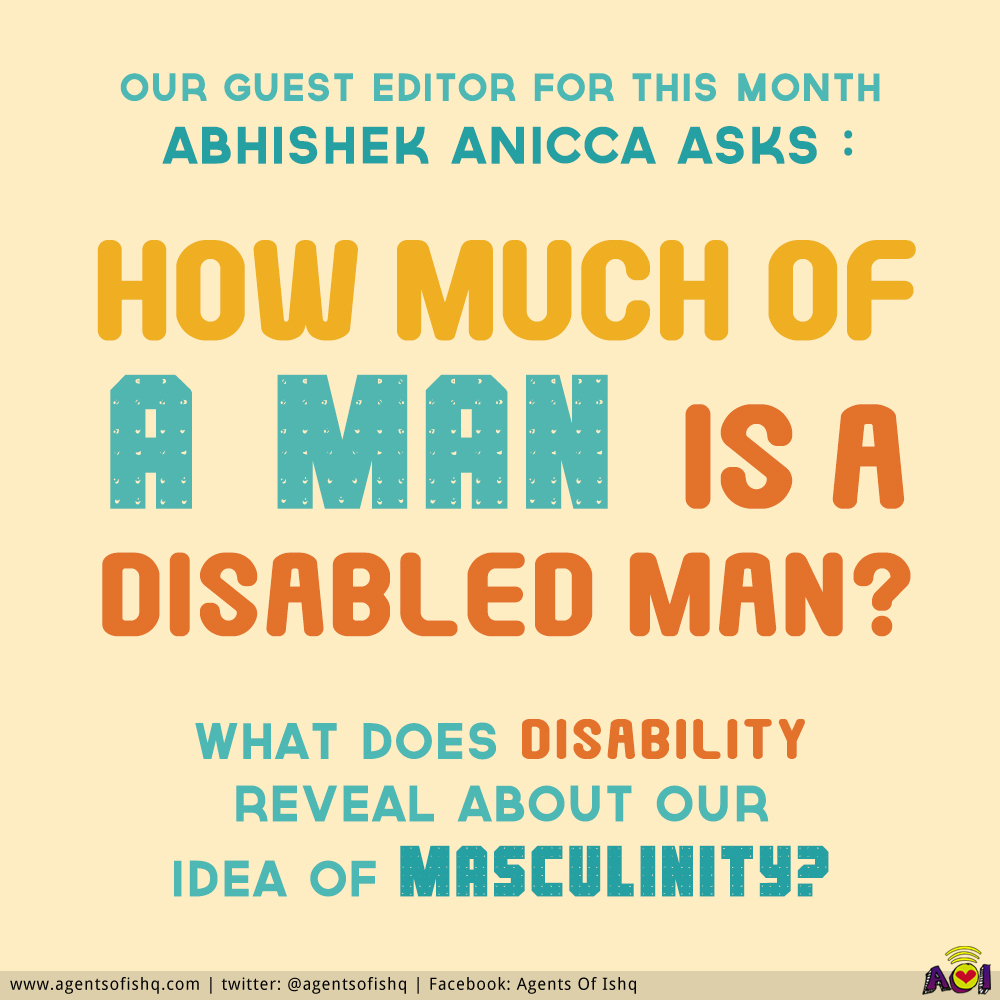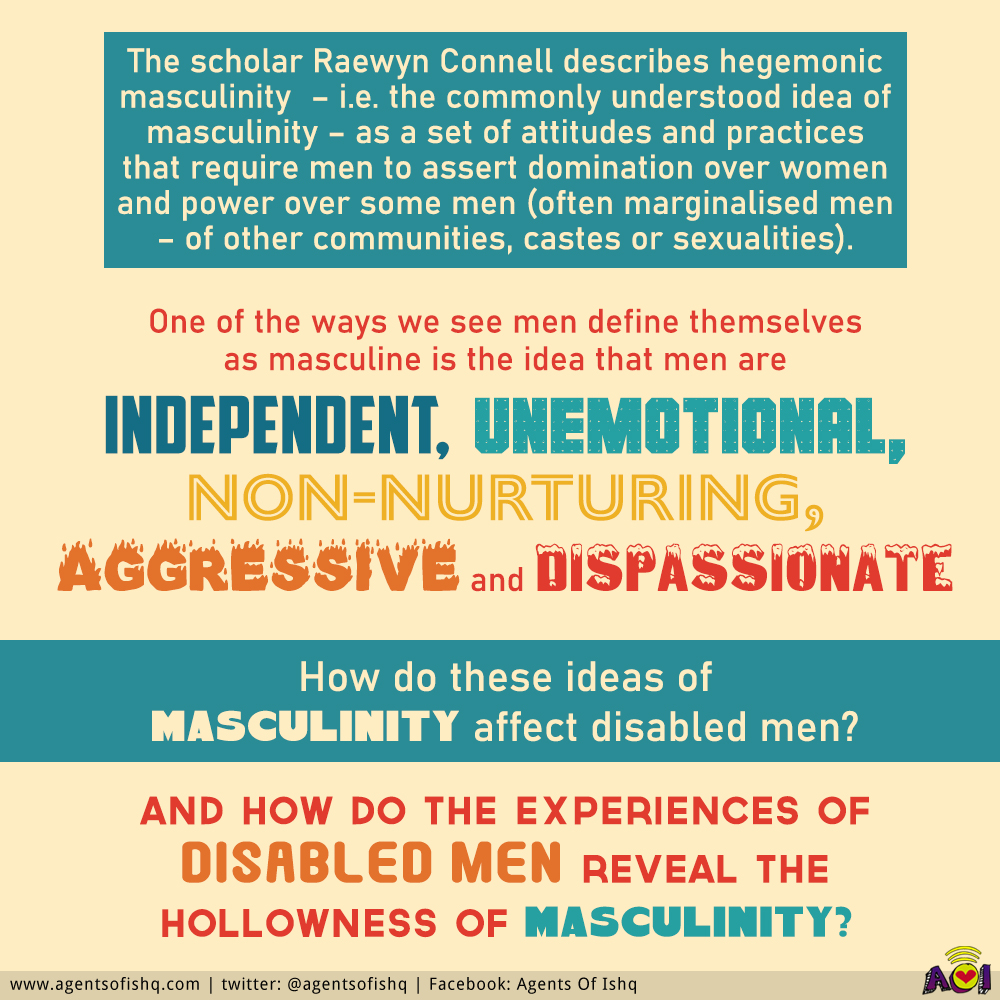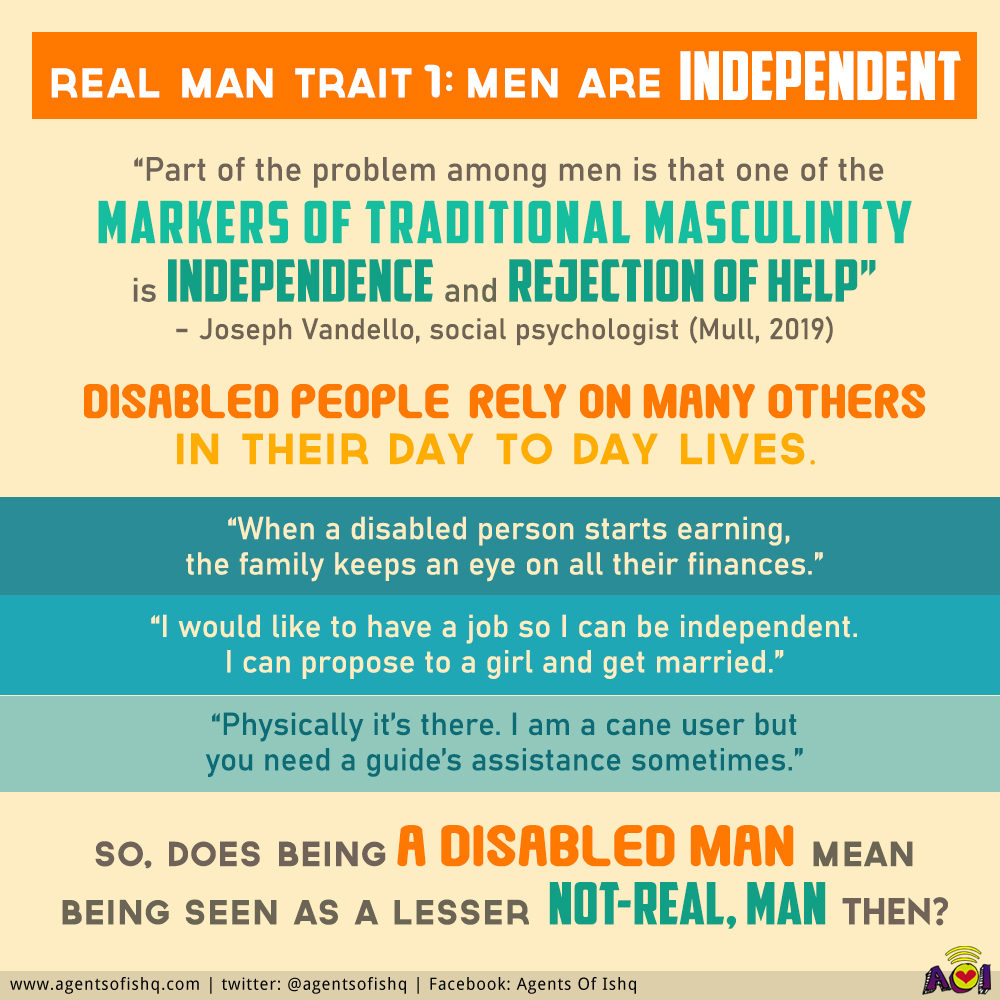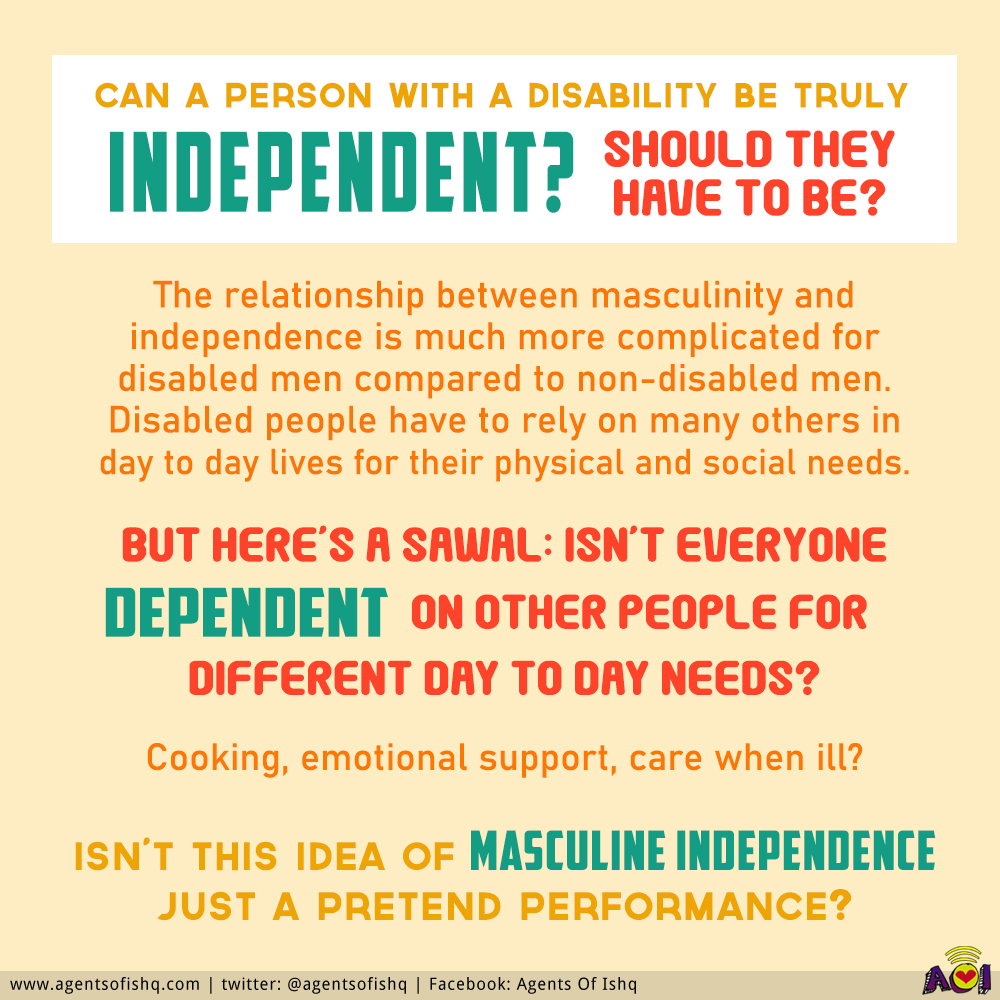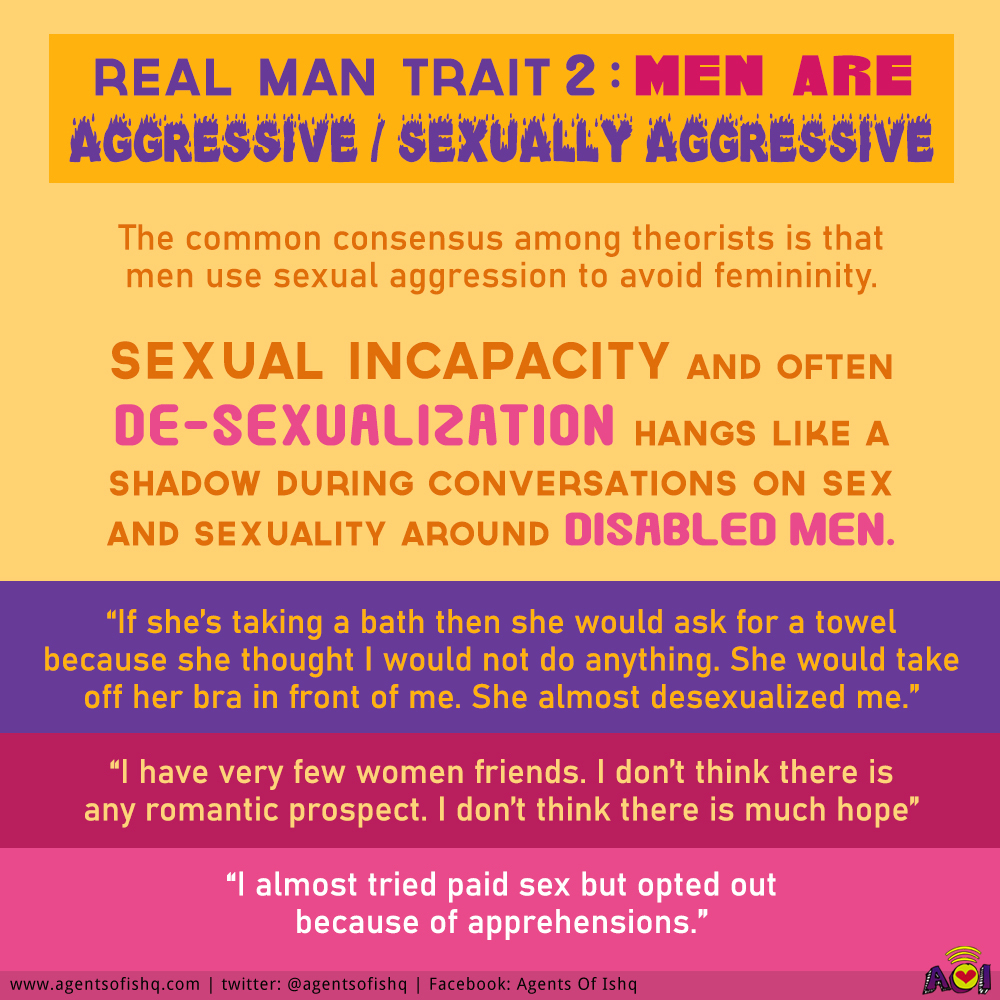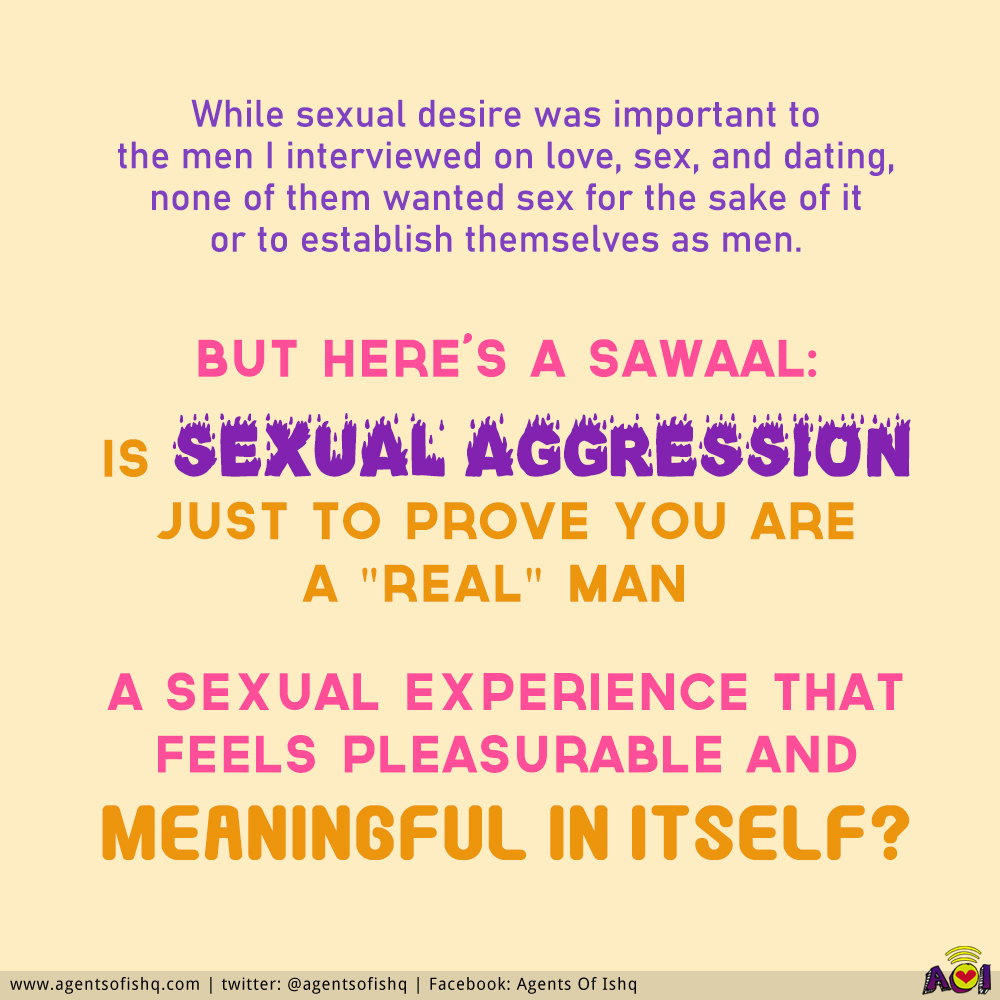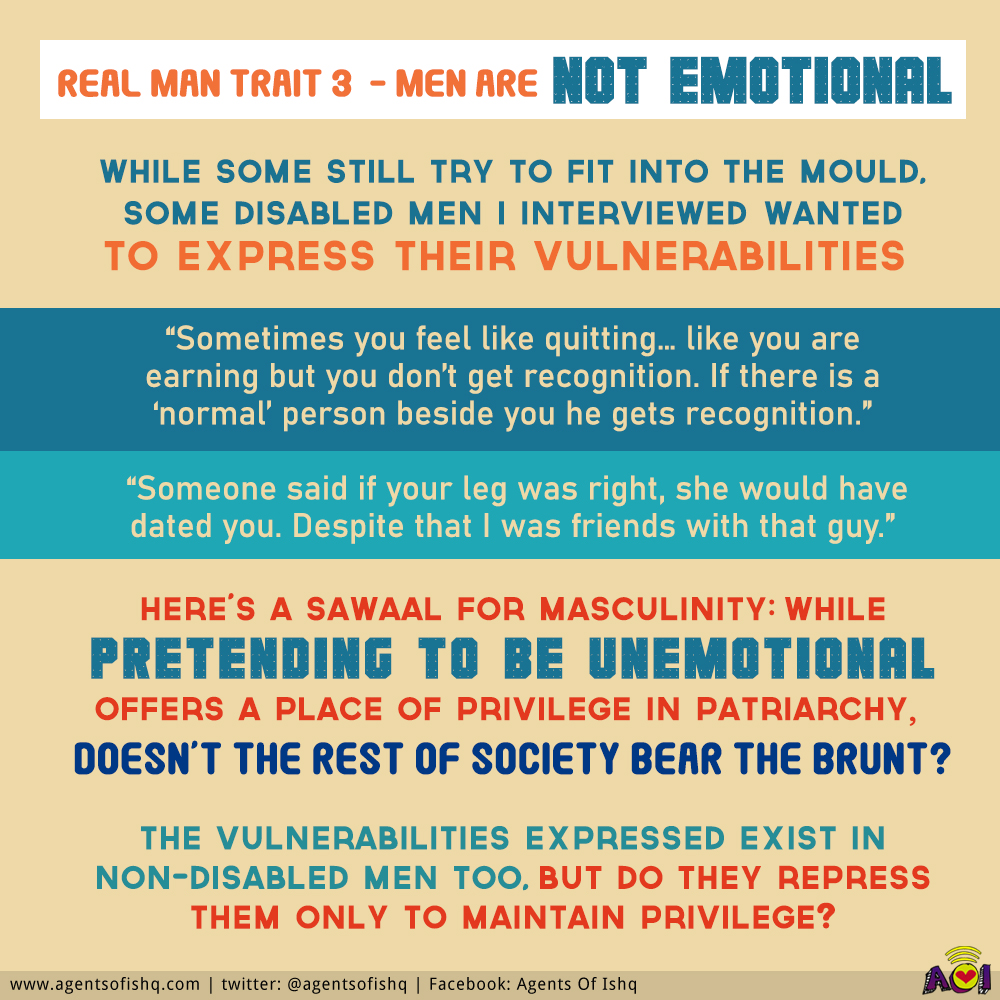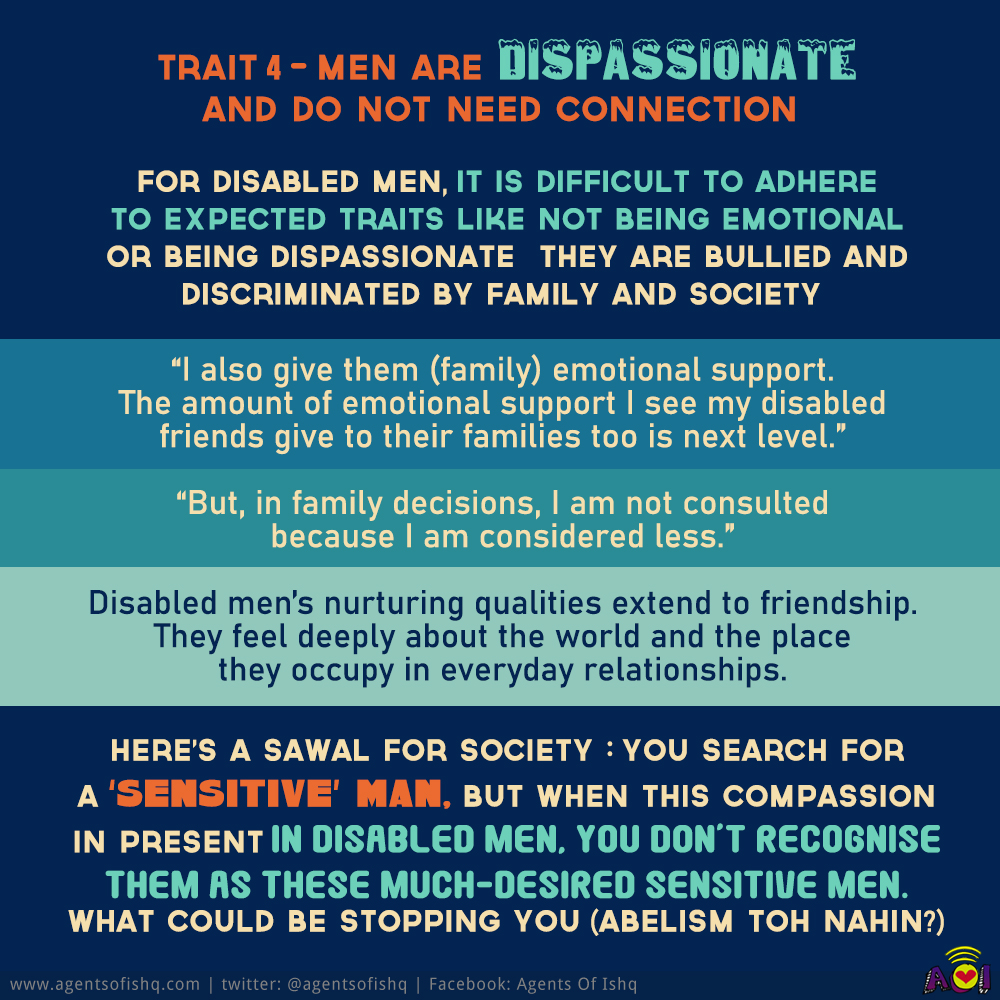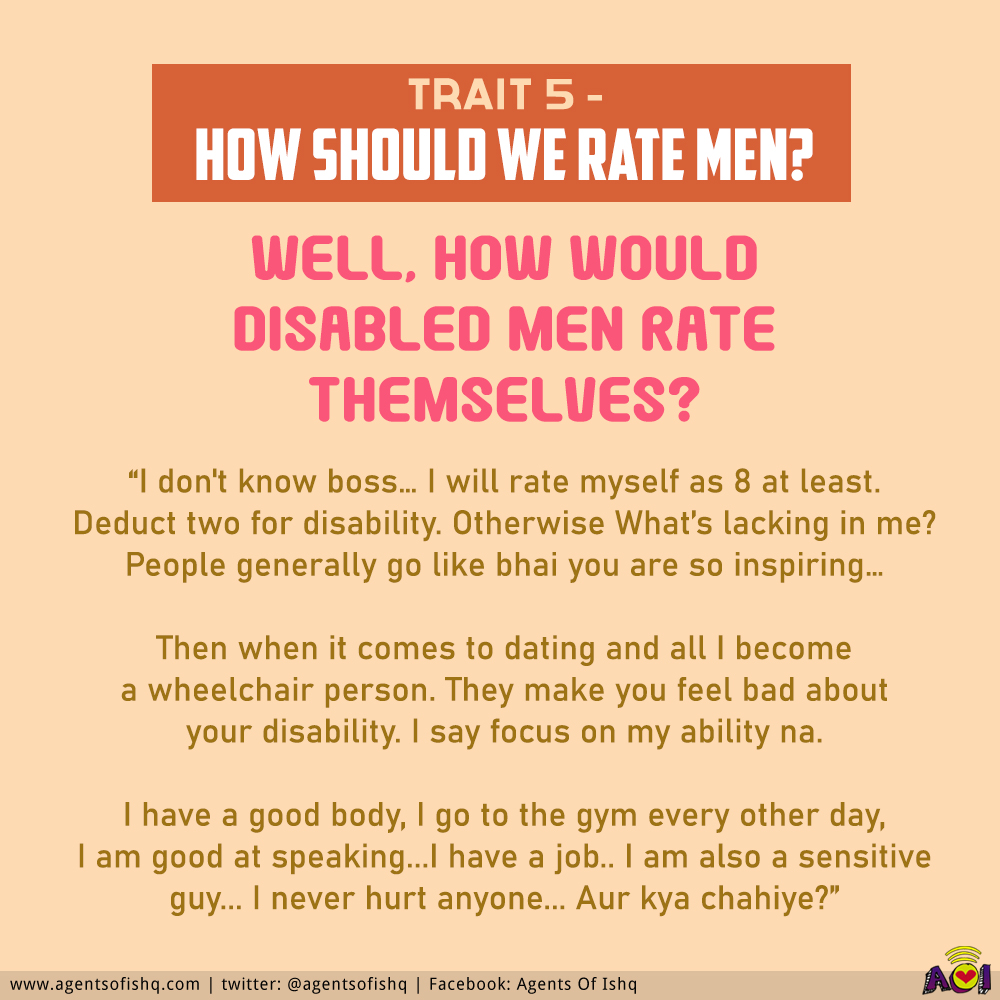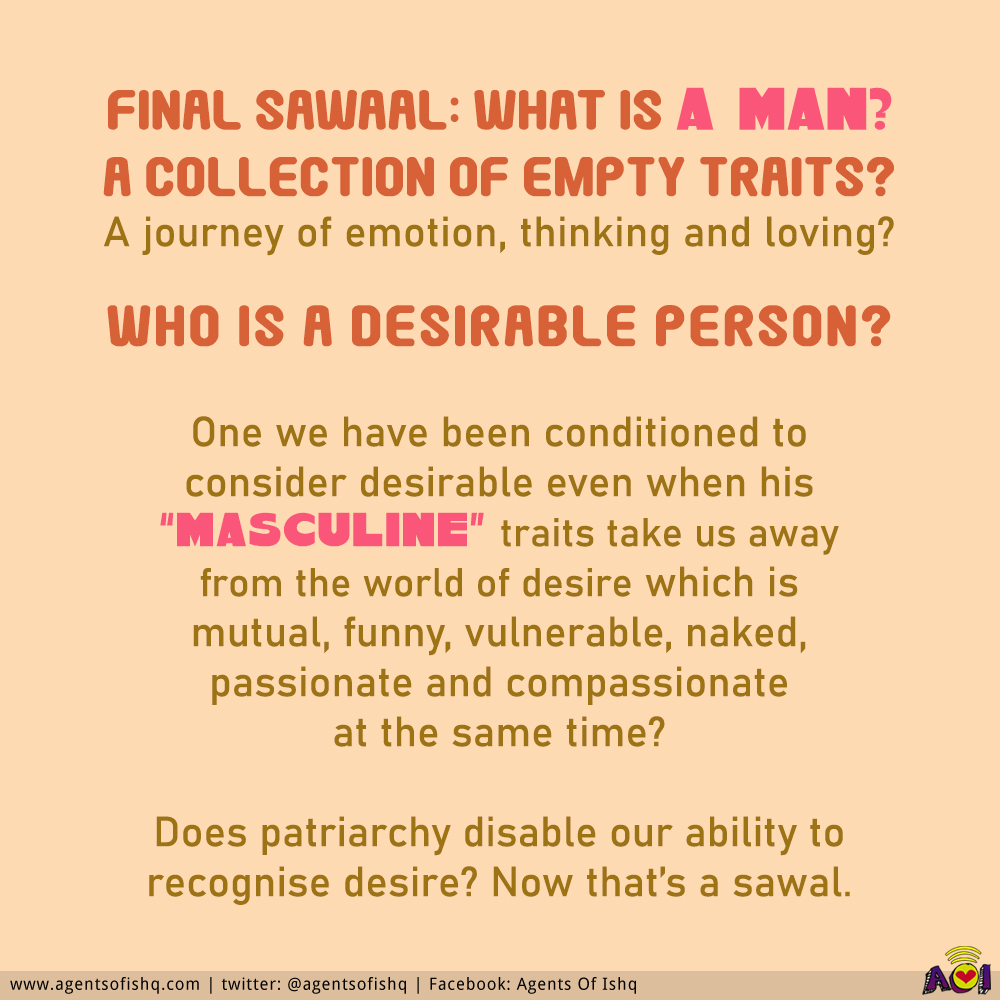ALT text: The images above contain the text written below in warm-toned colours.
Our guest editor for this month, Abhishek Annica asks:
How much of a man is a disabled man?
What does disability reveal about the idea of masculinity?
The scholar Raewyn Connell describes hegemonic masculinity – i.e. the commonly understood idea of masculinity – as a set of attitudes and practices that require men to assert domination over women and power over some men (often marginalised men – of other communities, castes or sexualities).
One of the ways we see men define themselves as masculine is the idea that men are
independent, unemotional, non-nurturing, aggressive and dispassionate.
How do these ideas of masculinity affect disabled men?
And how do the experiences of disabled men reveal the hollowness of masculinity?
REAL MAN TRAIT 1: Men are independent
“Part of the problem among men is that one of the markers of traditional masculinity is independence and rejection of help.”
-- Joseph Vandello, social psychologist (Mull, 2019)
Disabled people have to rely on many others in day to day lives for their physical and social needs.
“When a disabled person starts earning, the family keeps an eye on all their finances.”
“I would like to have a job so I can be independent. I can propose to a girl and get married.”
“Physically it’s there. I am a cane user but you need a guide’s assistance sometimes.”
So, is being a disabled man mean being seen as a lesser, not-real, man then?
Can a person with a disability be truly independent? Should they have to be?
The relationship between masculinity and independence is much more complicated for disabled men compared to non-disabled men. Disabled people have to rely on many others in day to day lives for their physical and social needs.
But here’s a sawal: isn’t everyone dependent on other people for different day to day needs? Cooking, emotional support, care when ill? Isn’t this idea of masculine independence just a pretend performance?
REAL MAN TRAIT 2: Men are aggressive/sexually aggressive
The common consensus among theorists is that men use sexual aggression to avoid femininity.
Sexual incapacity and often de-sexualization hangs like a shadow during conversations on sex and sexuality around disabled men.
“If she is taking a bath then she would ask for a towel because she thought I would not do anything. She would take off her bra in front of me. She almost desexualized me.”
“I have very few women friends. I don’t think there is any romantic prospect. I don’t think there is much hope”
“I almost tried paid sex but opted out because of apprehensions.”
While sexual desire was important to the men I interviewed on love, sex, and dating, none of them wanted sex for the sake of it or to establish themselves as men.
But here’s a sawal: is sexual aggression just to prove you are a ‘real’ man, a sexual experience that feels pleasurable and meaningful in itself?
REAL MAN TRAIT 3 - Men are not emotional.
While some may still try to fit into the mould, some disabled men I interviewed wanted to express their vulnerabilities, to be sensitive, and emotional human beings.
“Sometimes you feel like quitting…like you are earning but you don’t get recognition. If there is a ‘normal’ person beside you he gets recognition.”
“Someone said if your leg was right, she would have dated you. Despite that I was friends with that guy.”
Here’s a sawal for masculinity: While pretending to be unemotional offers a place of privilege in patriarchy, doesn’t the rest of society bear the brunt? The vulnerabilities expressed exist in non-disabled men too, but do they repress them only to maintain privilege?
TRAIT 4 - Men are dispassionate and do not need connection.
For disabled men, it is difficult to adhere to expected traits like not being emotional or being dispassionate. They are bullied and discriminated by family and society.
“I also give them (family) emotional support. The amount of emotional support I see my disabled friends give to their families too is next level.”
“But, in family decisions, I am not consulted because I am considered less.”
Disabled men’s nurturing qualities extend to friendship. They feel deeply about the world and the place they occupy in everyday relationships.
Here’s a sawal for society: You search for a ‘sensitive’ man, but when this compassion in present in disabled men, you don’t recognise them as these much-desired sensitive men. What could be stopping you (abelism toh nahin?)
TRAIT 5 - HOW SHOULD WE RATE MEN?
WELL, HOW WOULD DISABLED MEN RATE THEMSELVES?
I don't know boss…I will rate myself as 8 at least. Deduct two for disability. Otherwise What’s lacking in me? People generally go like bhai you are so inspiring…Then when it comes to dating and all I become a wheelchair person. They make you feel bad about your disability. I say focus on my ability na. I have a good body,I go to the gym every otheday, I am good at speaking...I have a job..I am also a sensitive guy...I never hurt anyone...
Aur kya chahiye?
Final sawal: What is a man? A collection of empty traits? A journey of emotion, thinking and loving?
Who is a desirable person? One we have been conditioned to consider desirable even when his “masculine’ traits take us away from the world of desire which is mutual, funny, vulnerable, naked, passionate and compassionate at the same time?
Does patriarchy disable our ability to recognise desire?
Now that’s a sawal.

